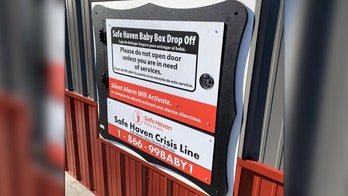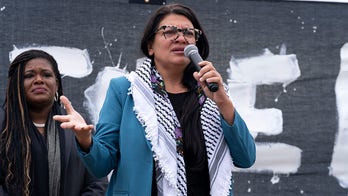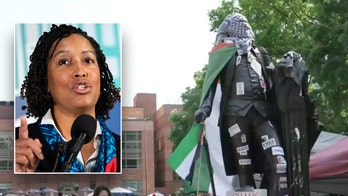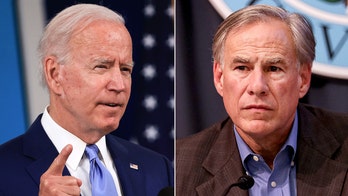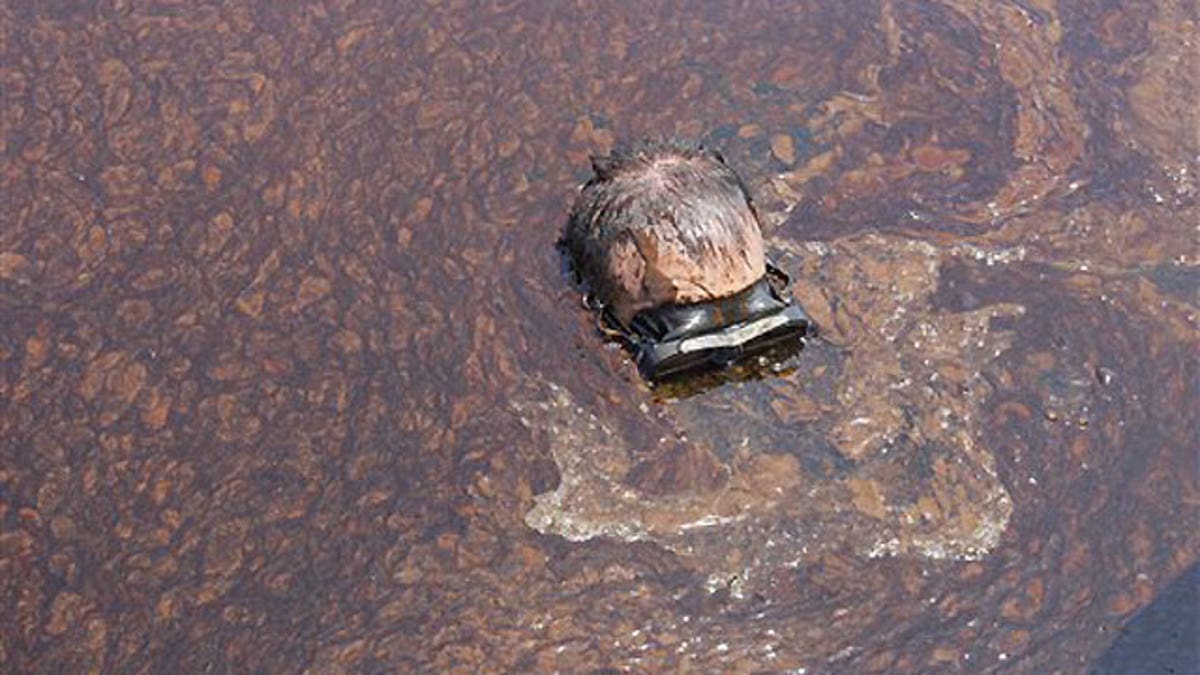
June 7: APTN photographer Rich Matthews takes a closer look at oil from the Deepwater Horizon spill in the Gulf of Mexico south of Venice, La. (AP Photo)
The White House is denying accusations that the administration prevented government scientists from informing the public of the worst-case scenario for the BP oil spill.
White House chief spokesman Robert Gibbs said Thursday the administration never tried to withhold "the most accurate and timely information" on the amount of oil spilling into the Gulf of Mexico as soon as it became available.
"Look, I think it is important to understand that our response attacked the oil spill in an unprecedented way," he said. "It was the largest environmental disaster that we have ever faced. And we attacked it with the largest federal response.
"We did all that was humanly possible in the most challenging of environments."
The national oil spill commission said in documents released Wednesday that the Obama administration kept scientists from being frank with the public and committed other missteps that raised questions about its competence and candor in the wake of the April 20 accident.
President Obama created the commission to investigate the BP spill.
Among other things, the report says, the administration made erroneous early estimates of the spill's size, and Obama's senior energy adviser went on national TV and mischaracterized a government analysis by saying it showed most of the oil was "gone." The analysis actually said it could still be there.
The administration has disputed the commission findings, saying senior government officials "were clear with the public what the worst-case flow rate could be."
The report, citing interviews with government officials, reveals that in late April or early May, the White House budget office denied a request from the National Oceanic and Atmospheric Administration to make public its worst-case estimate of how much oil could spew from the blown-out well. The Unified Command -- the government team in charge of the spill response -- also was discussing the possibility of making the numbers public, the report says.
But Kenneth Baer, a spokesman for the Office of Management and Budget, said the budget office had concerns about the reliability of the NOAA estimates.
"The issue was the modeling, the science and the assumptions they were using to come up with their analysis. Not public relations or presentation," he said. "We offered NOAA suggestions of ways to improve their analysis, and they happily accepted it."
The explosion in the Gulf of Mexico killed 11 workers, spewed 206 million gallons of oil from the damaged oil well, and sank the Deepwater Horizon drilling rig.
BP's drilling permit for the well originally estimated the worst-case scenario to be a leak of 6.8 million gallons per day. In late April, just after the spill began, the Coast Guard and NOAA received an updated worst-case estimate of 2.7 million to 4.6 million gallons per day.
While those figures were used as the basis for the government's response to the spill -- they appeared on an internal Coast Guard situation report and on a dry-erase board in NOAA's Seattle war room -- they were never announced to the public, according to the report.
For more than a month after the explosion, government officials were telling the public that the well was releasing 210,000 gallons per day. In early August, in its final estimate of the spill's flow, the government said it was gushing 2.6 million gallons per day -- close to the worst-case predictions.
The documents also criticize Carol Browner, director of the White House Office of Energy and Climate Change Policy, saying that during a series of morning-show appearances on Aug. 4, she misrepresented the findings of a federal analysis of where the oil went and incorrectly portrayed it as a scientific assessment that was peer-reviewed by inside and outside experts.
"I think it's also important to note that our scientists have done an initial assessment, and more than three-quarters of the oil is gone," Browner said on NBC's "Today" show.
But the analysis never said it was gone, according to the commission. It said it was dispersed, dissolved or evaporated -- meaning it could still be there. And while NOAA administrator Jane Lubchenco was more cautious in her remarks at a news conference at the White House later that day, the commission staff accuses the two senior officials of contributing to the perception that the government's findings were more exact than they actually were.
Gibbs said he believes the administration was "abundantly clear" that day about what the oil budget represented.
"It represented the fact that there was very good news, that oil had biodegraded, that oil had been skimmed, that oil had been burned," he said. "That the very worst-case scenarios that many people thought we would be dealing with never came to fruition largely because of that federal response."
The Associated Press contributed to this report.

